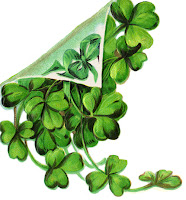Self-Starter: Students received a tape-in to place in the composition book under “Editing.”
Title: What do you notice?
What do you notice about these sentences? Write about three or more things you notice about them. What you notice could be about individual sentences or about all of them. At least two of your noticings should be about something we’ve been studying lately.
My papa’s hair is like a broom, all up in the air. And me, my hair is lazy. It never obeys barrettes or bands. Carlos’s hair is thick and straight. He doesn’t need to comb it. Nenny’s hair is slippery – slides out of your hand. And Kiki, who is youngest, has hair like fur.
---Sandra Cisneros, The House on Mango Street (1991)
Reminder: You already have this handout. Look at it again to see what you know about the use of apostrophes in it.
1. Harold's eyes were glued to the floor. He couldn't look.
2. Harold is in the principal's office. --Dav Pilkey, Captain Underpants and the Preposterous Plight of the Potty People (2006)3. Spelda tousled her son’s thick, black hair. -- Paul Stewart and Chris Riddle, The Edge Chronicles: Beyond the Deep Woods (1999)
4. Mac’s office is located in the East Wing boys’ bathroom, fourth stall from the high window. -- Chris Rylander, The Fourth Stall_______________________________________________________________
Title: What do you notice?
What do you notice about these sentences? Write about three or more things you notice about them. What you notice could be about individual sentences or about all of them. At least two of your noticings should be about something we’ve been studying lately.
My papa’s hair is like a broom, all up in the air. And me, my hair is lazy. It never obeys barrettes or bands. Carlos’s hair is thick and straight. He doesn’t need to comb it. Nenny’s hair is slippery – slides out of your hand. And Kiki, who is youngest, has hair like fur.
---Sandra Cisneros, The House on Mango Street (1991)
Reminder: You already have this handout. Look at it again to see what you know about the use of apostrophes in it.
1. Harold's eyes were glued to the floor. He couldn't look.
2. Harold is in the principal's office.
1. Harold's eyes were glued to the floor. He couldn't look.
2. Harold is in the principal's office.












